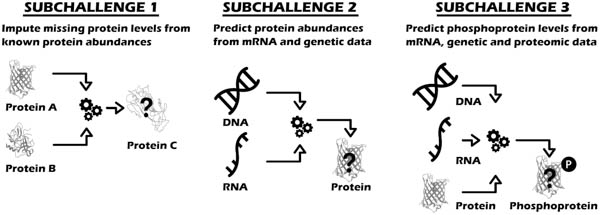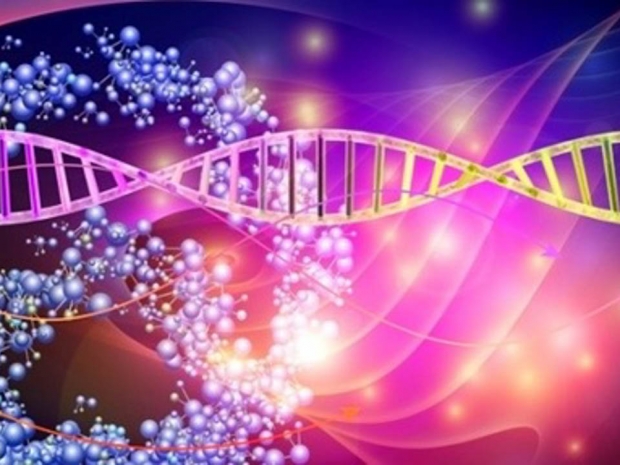
The reward is being offered in collaboration with the Proteogenomics DREAM Challenge, a community-based competition within the scientific community being hosted by the National Cancer Institute. The institute’s Clinical Proteomic Tumor Analysis Consortium (CPTAC) is openly inviting researchers from around the globe to participate in a benchmarking effort to understand the interfaces between different layers of information in a population of cancer cells.
Participants asked to solve three elusive questions from cloud-based datasets
Some of the questions researchers will be asked to answer include whether the abundance of a single protein can be predicted from a large protein dataset, whether an abundance of proteins can be predicted from mRNA and gene data, and whether phosphoproteomic cell states can be predicted from mRNA and gene data.
Source: Synapse.org
Using crowdsourcing techniques, the CPTAC group hopes to find some of the best answers to elusive questions in the proteogenomics field. Nvidia, in turn, will allow researchers will use a mix of its Tesla K80 GPU accelerators through Google Cloud to receive the tens of teraflops of performance needed for molecular modeling and protein simulations.
More specifically, researchers will be given access to a set of web services through Sage Bionetworks’ Synapse system. This way, the entire community receives a common API for indexing and retrieving the datasets needed for the challenge. After all calculations have been computed and finalized, Synapse will then describe the results in a manuscript that will be submitted to the Nature Methods scientific journal. Community participants will then have a chance to present their results at the 10th annual RECOMB/ISCB Conference on Regulator and Systems Genomics, hosted from November 19th to 21st in New York.
Pre-registration for the DREAM challenge on proteogenomics is now open, and the number of participants is currently just over 130. The actual contest will begin later this summer using “public” and “novel” data generated by CPTAC.
A brief history of Nvidia Foundation’s awards and grants
Nvidia has donated more than $3 million to cancer causes since 2011, mostly through grants and employee fundraising activities. The company’s first research grant that year funded Virginia Tech and Virginia Bioinformatics Institute to develop the an open-source software framework for cancer researchers, called the Open Genomics Engine. In 2013, the Nvidia Foundation awarded a $200,000 grant to a UC San Diego researcher on her work in producing a GPU-accelerated workflow to speed the development of cancer-fighting drugs. In 2014, the foundation awarded another $200,000 to researchers from Stanford University and Dana-Farber Cancer Institute in developing GPU-accelerated algorithms for discovering cancer subtypes in large genomic mutational data sets.
In 2015, another $200,000 was awarded to a University of Sussex and University of Toronto graduate students for using GPU-powered deep learning techniques in cancer diagnostics, and for improving adaptive radiation therapy. Most recently, research teams from the Translational Genomics Research Institute (TGen) andn University of North Texas each received $200,000 for developing a GPU-accelerated statistical analysis tool for precision medicine modeling, and to discover new cancer biomarkers that will aid in cost-effective, personalized gene therapy treatments.




